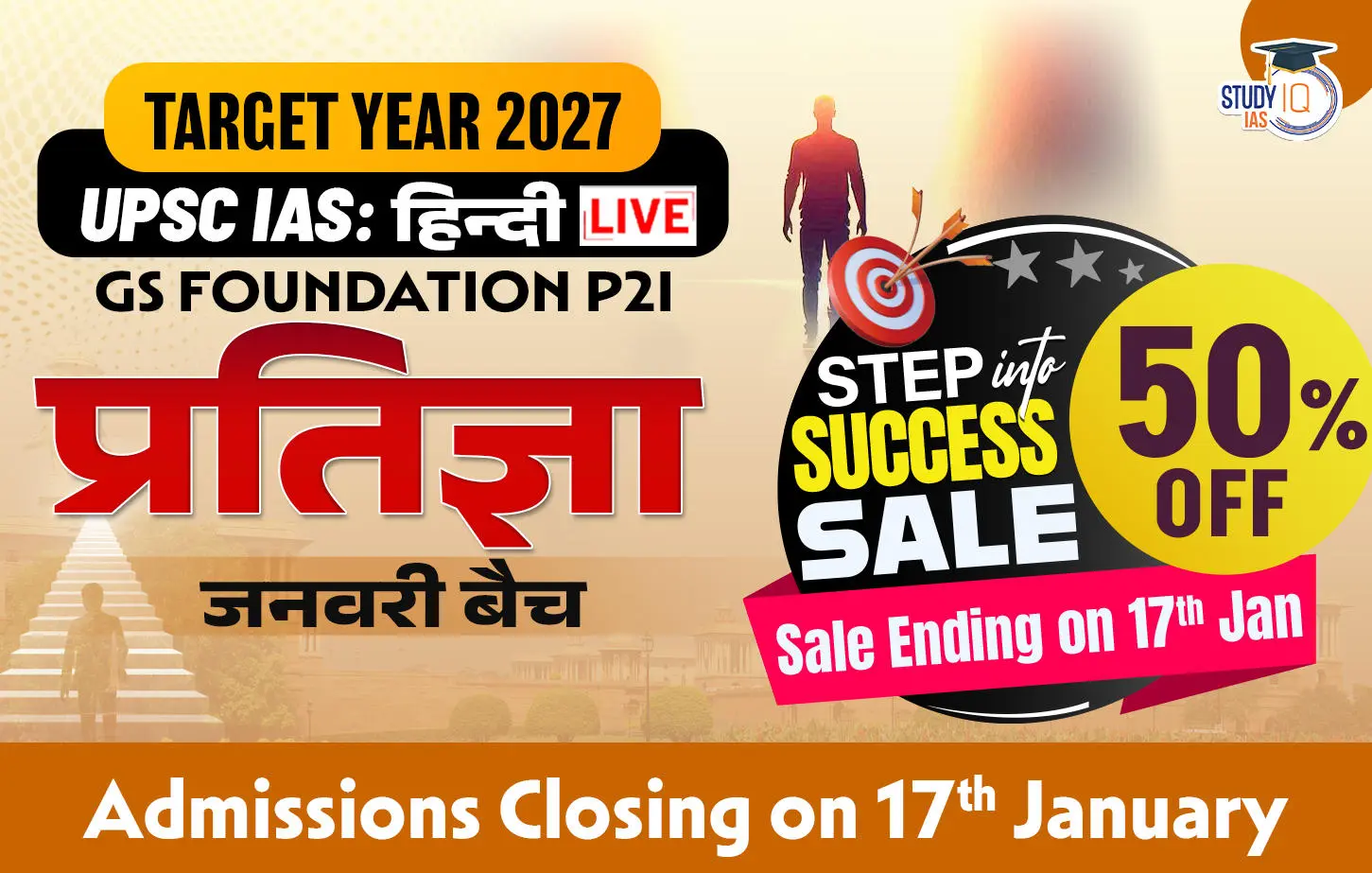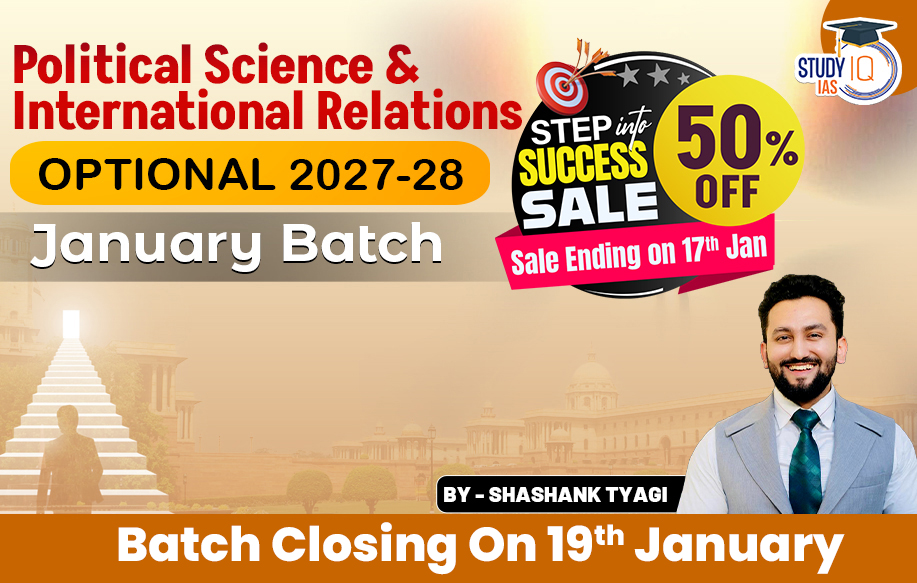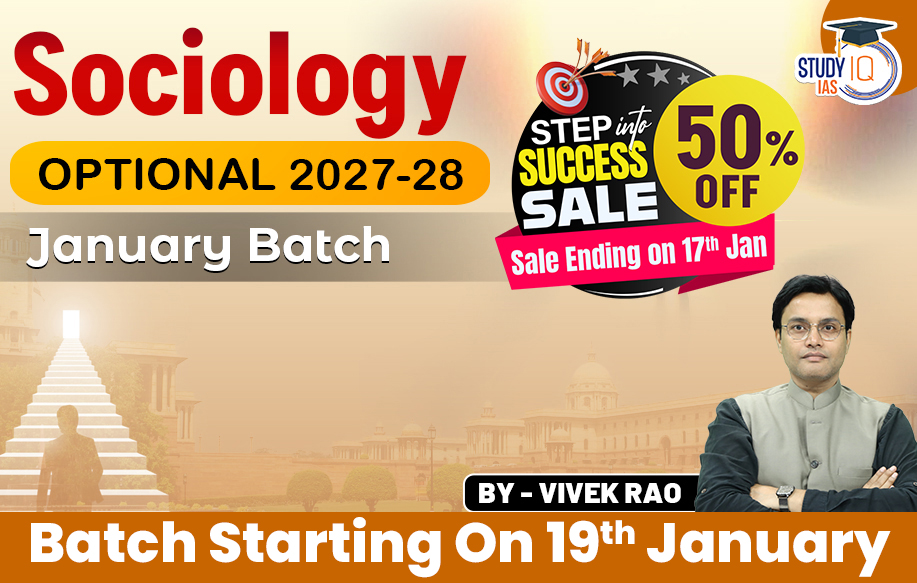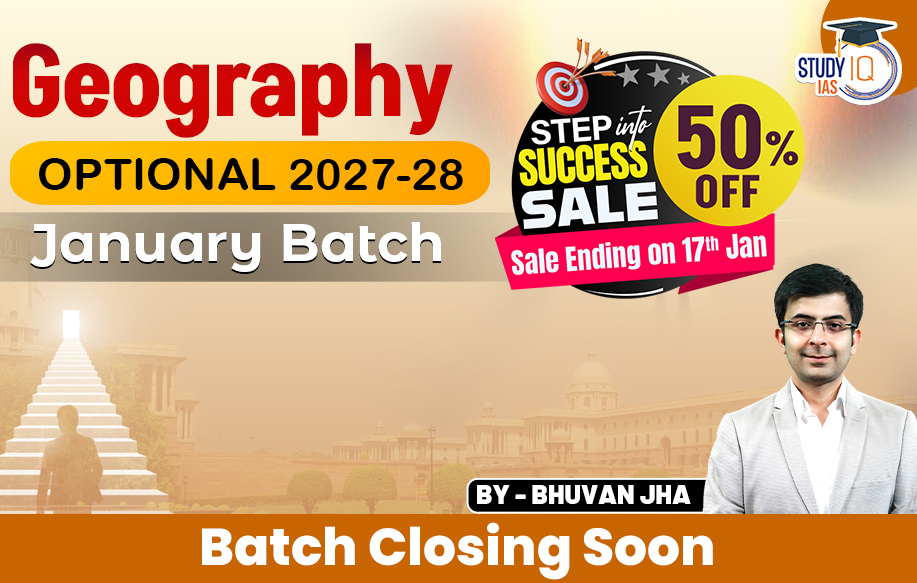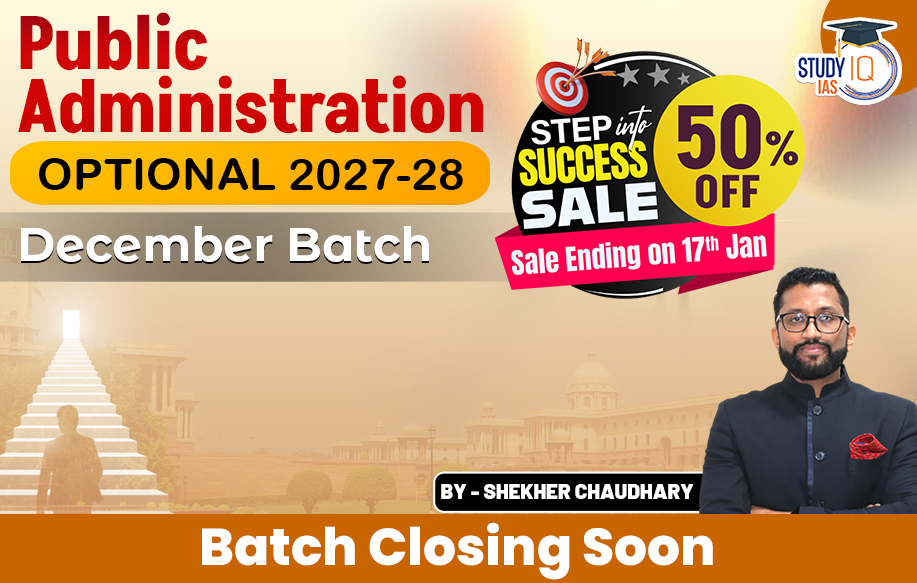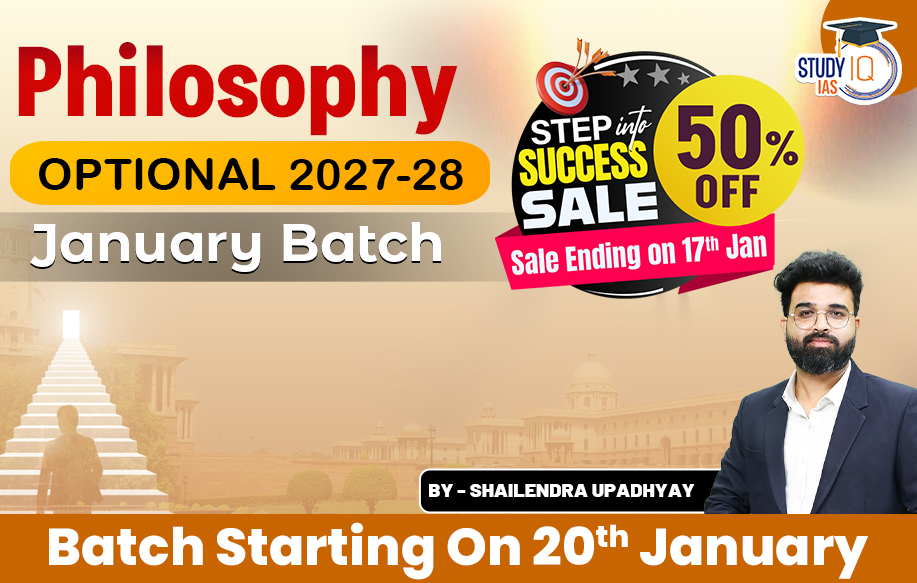Table of Contents
Historical Evolution of Student Politics
- All India Students’ Federation (AISF):
- Formation: An all-India conference of student activists was held in Karachi in March 1931, convened by Jawaharlal Nehru to establish the AISF. Over 700 delegates attended.
- Objective: To mobilise young people against British imperialism.
- First Conference: Held in Lucknow in August 1936. Nehru inaugurated the event, and Muhammad Ali Jinnah presided.
- Nehru advised inclusivity, but the movement splintered along religious and political lines within two years. In 1937, the Muslim Students Federation was formed under Jinnah and Muhammad Iqbal’s patronage.
- Splits in the AISF:
- In December 1940, at the Nagpur session, the AISF split over priorities — Indian Independence versus global solidarity against fascism.
- The National Congress Student Organisation (NCSO), later known as the All India Student Congress (AISC), emerged in 1943. Its first president was Ram Sumer Shukla, followed by Ravinder Verma in 1946.
Post-Independence Developments
- Akhil Bharatiya Vidyarthi Parishad (ABVP):
- Formation: Established in July 1949 by Balraj Madhok and Yashwantrao Kelkar with RSS backing to counter communist influence in university campuses.
- Samajwadi Yuvjan Sabha:
- Background: An offshoot of Ram Manohar Lohia’s socialist party formed in December 1955.
- National Students’ Union of India (NSUI):
- Formation: The student wing of the Indian National Congress, established by Indira Gandhi in April 1971.
Notable International and National Student Movements
- Paris Student Movement (1968): A global inspiration, it promoted left-wing politics, anti-war sentiments, civil rights, and counter-cultural ideals (later mainstreamed in the hippie movement of the 1970s).
- Indian Student Movements:
- Anti-Hindi Agitation (1965): Predominantly in south India, it opposed the imposition of Hindi.
- Anti-English Agitation (1967): Primarily in north India, this movement was linguistic in nature but evolved into broader student agitations.
- Navnirman Andolan (1974): A movement in Gujarat protesting corruption and poor governance.
- Sampoorna Kranti (1974-75): Led by Jayaprakash Narayan, this call for “total revolution” involved students and was a significant force against the Emergency imposed by Indira Gandhi.
- Mandal Commission Agitation (1990): Large-scale protests erupted against the implementation of the Mandal Commission’s recommendations on job reservations for backward classes.
Post-1991 Transition and Decline of Ideological Student Politics
- Global Changes (1991):
- The collapse of communism, symbolised by the fall of the Berlin Wall, the dissolution of the Soviet Union, and transformations in Eastern Europe, marked the decline of ideology-driven student politics globally.
- Francis Fukuyama’s “The End of History and the Last Man” (1992)” heralded the end of the ideological age, describing how liberal democracy and capitalism had triumphed.
- Indian Context (Post-1991):
- Economic Reforms and Globalisation: The liberalisation of the Indian economy and alignment with the Washington Consensus opened new career paths, diminishing the appeal of student politics.
- New Career Opportunities: Medicine, engineering, civil service, and student politics were no longer the only prestigious career options. Broadcasting (following the opening of private enterprises in 1992), cable TV, and other fields became more attractive to young people.
- Reduced Student Activism: As more opportunities emerged, student activism began to be seen as less rewarding, except for those on the far left or far right.
Importance of Student Politics
- Active Participation: Student politics fosters active engagement among young people, who bring fresh perspectives and ideals to the political landscape.
- Their clarity of vision allows them to understand societal struggles and contribute meaningfully to political discourse.
- Personal Development: Involvement in student politics shapes individuals’ understanding of broader political issues, often stemmed from personal experiences with inequality and social injustice.
- This engagement can lead to a lifelong commitment to activism and political participation.
- Example: Arun Jaitley (the former finance minister) began student politics at Delhi University, where he led the ABVP.
- Foundation for Political Parties: The party’s existence and growth are attributed to the foundational work done by students, highlighting the importance of nurturing young leaders within party structures.
- Example: Many political parties, such as the Rashtriya Janata Dal (RJD), are deeply rooted in student activism and appointing former student leaders to significant party positions.
- Representation of Marginalised Communities: Student politics provides a platform for voices from marginalised backgrounds, ensuring that their issues are represented in larger political conversations. This representation is crucial for a more inclusive democracy.
- Leadership Development: Recent appointments of young leaders from student backgrounds to significant roles within political parties demonstrate a commitment to cultivating new talent.
- Example: Priyanka Bharati protested against fee hikes and Jayant Jigyasu’s leadership showed how students can resist policies that negatively impact society.
Call to Action
- Need for Inclusive Political Ideals: To counter divisive agendas, there is an urgent need for student politics that aligns with the principles of inclusive leaders from India’s history, such as Mahatma Gandhi and B.R. Ambedkar. Their teachings advocate for a democratic society that embraces diversity.
- Encouragement of Student Involvement: Political parties are urged to actively support and promote student involvement in politics. This engagement is viewed as an investment in the future of democracy, ensuring it remains strong, vibrant, and inclusive.
- Addressing Societal Issues: By empowering students to engage politically, there is potential for addressing pressing issues faced by society today. Students can play a pivotal role in challenging the status quo and advocating for necessary reforms.
Conclusion
Today, student politics in India has largely retreated due to the broader opportunities post-1991 liberalisation and the decline of global ideological movements. Though some ideological factions remain active, student politics no longer holds the central role in national politics that it once did.

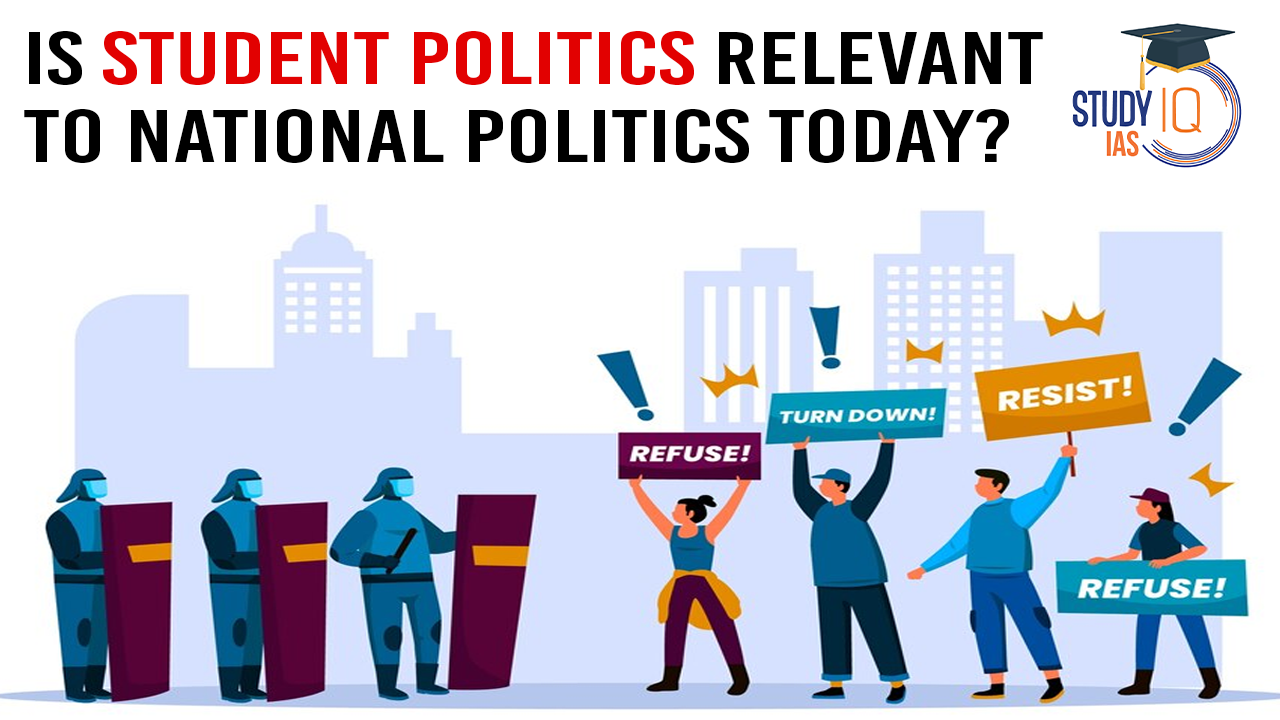
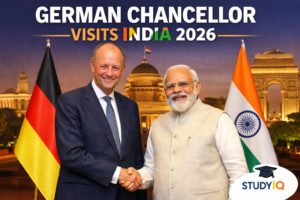 German Chancellor Visit to India in 2026...
German Chancellor Visit to India in 2026...
 India’s Data Centre Capacity More Than...
India’s Data Centre Capacity More Than...
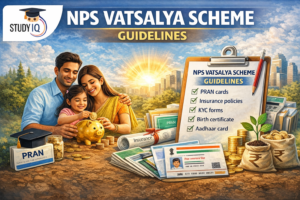 NPS Vatsalya Scheme Guidelines Released ...
NPS Vatsalya Scheme Guidelines Released ...


